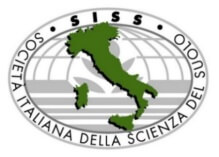Minireview: importance of herbicide-tolerant sunflower hybrids in suppressing common ragweed (Ambrosia artemisiifolia) pollen production
DOI:
https://doi.org/10.6092/issn.2281-4485/4247Keywords:
Ambrosia artemiisifolia, acetolactate synthase, allergenic pollen, common ragweed, herbicide resistant sunflower, weed controlAbstract
Common ragweed (Ambrosia artemisiifolia) is the number one weed in Hungary: it covers ca. 5% of the arable land, causing huge losses in row crops, especially in sunflowers. In addition, because of the high allergenicity of its pollen, common ragweed is a heavy burden on the health care system. This minireview discusses the importance of use of herbicide-tolerant sunflower hybrids in eliminating common ragweed from sunflower fields, with special emphasis on the efficacy of common ragweed control of two acetolactate-synthase inhibitor postemergence herbicides (imazamox and tribenuron methyl) in several sunflower hybrids that carry the resistance gene against such herbicides. Common ragweed control by these herbicides was excellent: they suppressed the growth of the weed plant until the canopy closure of the crop (8-leaf stage). Common ragweed plants germinating after this date were unable to compete with the crop: although they survived, they remained small (ca. 70% reduction in height), produced ca. 90% less male inflorescences (source of the allergenic pollen), and caused no significant reduction in the crop yield. In order to stop the seed production by the few late-germinating weed plants we recommend a mechanical common measure (row-cultivator) in late August.References
Al-Khatib, K., Baumgartner, J.R., Peterson, D.E., Currie, R.S., 1998. Imazethapyr resistance in common sunflower (Helianthus annuus). Weed Science 46, 403–407.
Allen, J.R., Johnson, W.G., Smeda, R.J., Wiebold, W.J., Massey, R.E., 2001. Management of acetolactate synthase (ALS)-resistant common sunflower (Helianthus annuus L.) in soybean (Glycine max)1. Weed Technology 15, 571–575. doi:10.1614/0890-037X(2001)015[0571:MOASAR]2.0.CO;2
Benbrook, C.M., 2012. Impacts of genetically engineered crops on pesticide use in the U.S. -- the first sixteen years. Environmental Sciences Europe 24, 24. doi:10.1186/2190-4715-24-24
Breccia, G., Vega, T., Felitti, S.A., Picardi, L., Nestares, G., 2013. Differential expression of acetohydroxyacid synthase genes in sunflower plantlets and its response to imazapyr herbicide. Plant Sci. 208, 28–33. doi:10.1016/j.plantsci.2013.03.008
Bulos, M., Sala, C.A., Altieri, E., Ramos, M.L., 2013. Marker assisted selection for herbicide resistance in sunflower. HELIA 36, 1–16.
Busi, R., Vila-Aiub, M.M., Beckie, H.J., Gaines, T.A., Goggin, D.E., Kaundun, S.S., Lacoste, M., Neve, P., Nissen, S.J., Norsworthy, J.K., Renton, M., Shaner, D.L., Tranel, P.J., Wright, T., Yu, Q., Powles, S.B., 2013. Herbicide-resistant weeds: from research and knowledge to future needs. Evolutionary Applications 6, 1218–1221. doi:10.1111/eva.12098
Cecchi, L., Malaspina, T., Albertini, R., Zanca, M., Ridolo, E., Usberti, I., Morabito, M., Dall’ Aglio, P., Orlandini, S., 2007. The contribution of long-distance transport to the presence of Ambrosia pollen in central northern Italy. Aerobiologia 23, 145–151. doi:10.1007/s10453-007-9060-4
Cecchi, L., Marco, M., Paola, D.M., Alfonso, C., Marzia, O., Simone, O., 2006. Long distance transport of ragweed pollen as a potential cause of allergy in central Italy. Ann Allergy Asthma Immunol 96, 86–91.
Csontos, P., Vitalos, M., Barina, Z., Kiss, L., 2010. Early distribution and spread of Ambrosia artemisiifolia in Central and Eastern Europe. Botanica Helvetica 120, 75–78. doi:10.1007/s00035-010-0072-2
Délye, C., Boucansaud, K., Pernin, F., Le Corre, V., 2009. Variation in the gene encoding acetolactate-synthase in Lolium species and proactive detection of mutant, herbicide-resistant alleles. Weed Research 49, 326–336. doi:10.1111/j.1365-3180.2009.00700.x
Edgerton, M.D., 2009. Increasing crop productivity to meet global needs for feed, food, and fuel. Plant Physiology 149, 7 –13. doi:10.1104/pp.108.130195
Green, J.M., Owen, M.D.K., 2011. Herbicide-resistant crops: utilities and limitations for herbicide-resistant weed management. J Agric Food Chem 59, 5819–29.
Hlais, S., El-Bistami, D., El Rahi, B., Mattar, M.A., Obeid, O.A., 2013. Combined fish oil and high oleic sunflower oil supplements neutralize their individual effects on the lipid profile of healthy men. Lipids 48, 853–861. doi:10.1007/s11745-013-3819-x
Kaspar, M., Grondona, M., Leon, A., Zambelli, A., 2011. Selection of a sunflower line with multiple herbicide tolerance that is reversed by the P450 inhibitor malathion. Weed Science 59, 232–237. doi:10.1614/WS-D-10-00120.1
Lamego, F.P., Charlson, D., Delatorre, C.A., Burgos, N.R., Vidal, R.A., 2009. Molecular basis of resistance to ALS-inhibitor herbicides in greater beggarticks. Weed Science 57, 474–481. doi:10.1614/WS-09-056.1
Merotto, J.R., Jasieniuk, M., Fischer, A.J., 2009. Estimating the outcrossing rate of Cyperus difformis using resistance to ALS-inhibiting herbicides and molecular markers. Weed Research 49, 29–36. doi:10.1111/j.1365-3180.2008.00668.x
Pfenning, M., Palfay, G., Guillet, T., 2008. The CLEARFIELD technology - A new broad-spectrum post-emergence weed control system for European sunflower growers. Journal of Plant Disease and Protection 115, 649–654.
Sala, C.A., Bulos, M., Altieri, E., Ramos, M.L., 2012. Root biomass response to foliar application of imazapyr for two imidazolinone tolerant alleles of sunflower (Helianthus annuus L.). Breed Sci 62, 235–240. doi:10.1270/jsbbs.62.235
Sikkema, P.H., Kramer, C., Vyn, J.D., Kells, J.J., Hillger, D.E., Soltani, N., 2007. Control of Muhlenbergia frondosa (wirestem muhly) with post-emergence sulfonylurea herbicides in maize (Zea mays). Crop Protection 26, 1585–1588. doi:10.1016/j.cropro.2007.02.006
Storkey, J., Stratonovitch, P., Chapman, D.S., Vidotto, F., Semenov, M.A., 2014. A process-based approach to predicting the effect of climate change on the distribution of an invasive allergenic plant in Europe. PLoS One 9. doi:10.1371/journal.pone.0088156
Streit, L.G., 2012. DuPontTM ExpressSunTM herbicide technology in sunflower. Presented at the 18th International Sunflower Conference, Mar del Plata, Argentina.
Weston, B., McNevin, G., Carlson, D., 2012. Clearfield Plus technology in sunflowers. Presented at the 18th International Sunflower Conference, Mar del Plata, Argentina.
Yu, Q., Han, H., Vila-Aiub, M.M., Powles, S.B., 2010. AHAS herbicide resistance endowing mutations: effect on AHAS functionality and plant growth. J. Exp. Bot. 61, 3925–3934. doi:10.1093/jxb/erq205
Downloads
Published
How to Cite
Issue
Section
License
Copyright (c) 2013 Peter Reisinger, Gabor Kukorelli, Andras Bittsanszky, Tamas Komives
Copyrights and publishing rights of all the texts on this journal belong to the respective authors without restrictions.
Articles published since 2020 are licensed under a Creative Commons Attribution 4.0 International License:
Previous articles are licensed under a Creative Commons Attribution-NonCommercial 3.0 Unported License:











